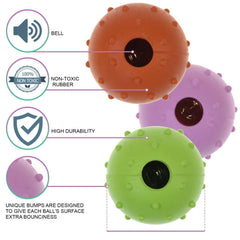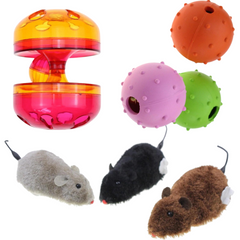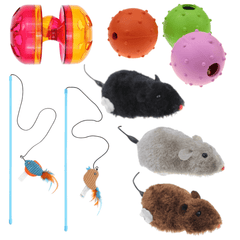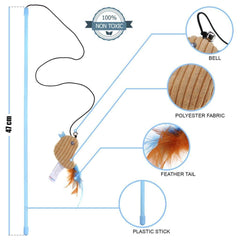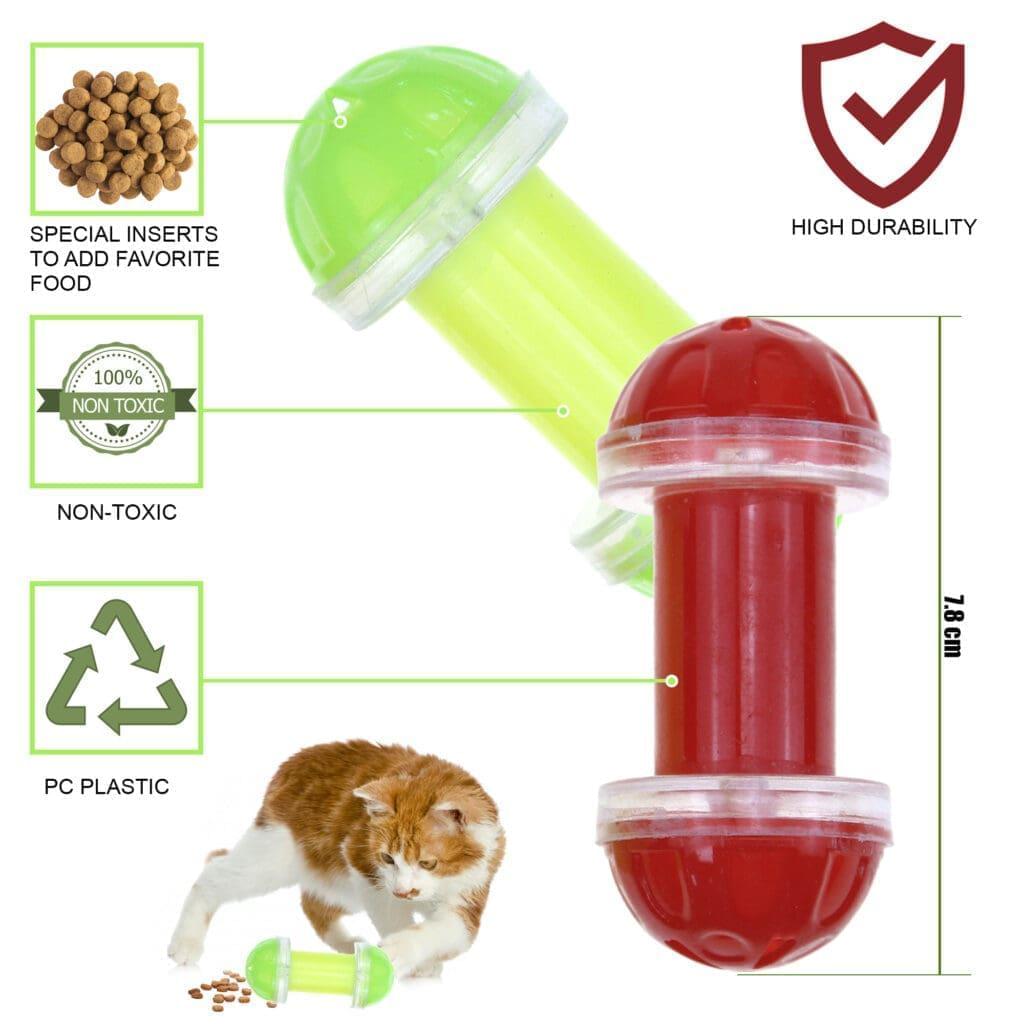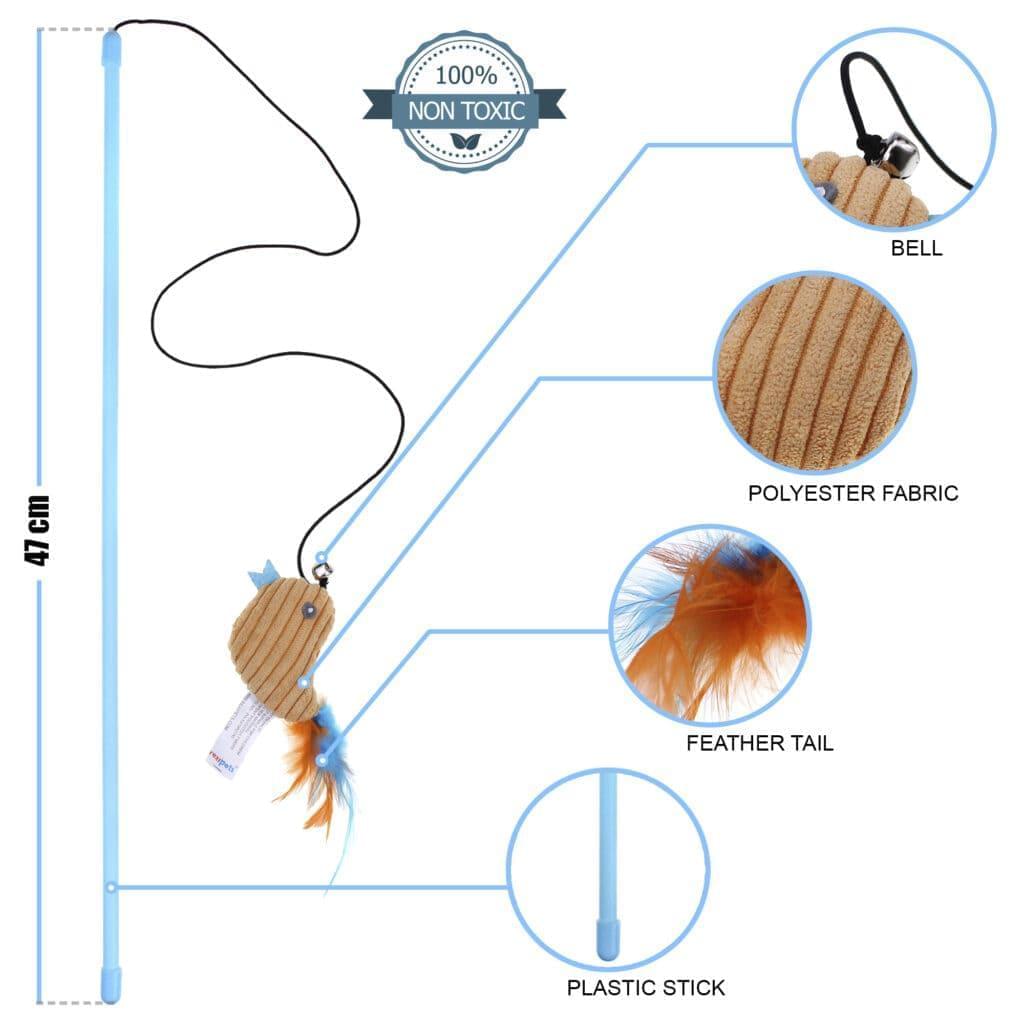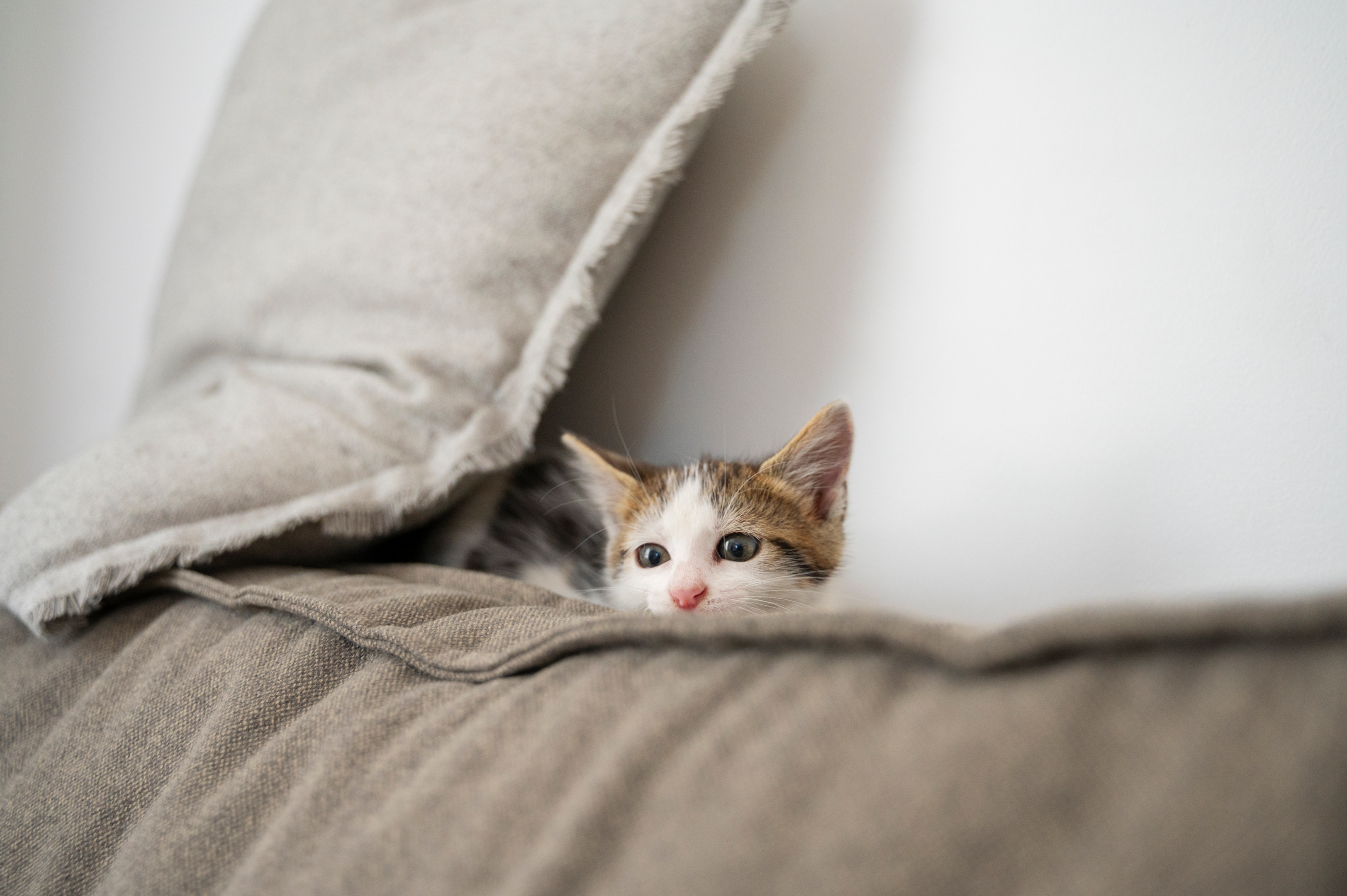
Does your furry friend also act like an alarm clock at the crack of dawn? It can be annoying. The continuous pawing, along with meowing loudly, is something we all, as pet parents, experience. It's pretty common cat wake behavior.
But don't worry! In this article, we'll share simple ways to make your cat stop waking you up too early. We'll give you easy tips so you both can sleep better and be happy together.
So get ready to say goodbye to early wake-up calls and hello to a good night's sleep with your cat!
Why Do Cats Wake Up Early?
Despite common belief, cats aren't nocturnal; they're crepuscular, which basically means they are most active during dusk and dawn. As natural predators, they align their activity with the times when birds, mice, and other potential prey are on the move, typically at sunrise and sunset.
Even domestic cats' instincts prompt them to be alert and active when their potential prey is active. That said, they need to sleep overnight. There are also other reasons why cats wake us up early in the morning. These include:
-
Hunger
One reason your cat wakes up early can be hunger; it's typical cat behavior. Cats have small stomachs, approximately the size of a ping pong ball, so cats eat small portions. They begin to feel hungry about 5 hours after eating. Moreover, despite concerns about feline obesity, some cat owners may not feed their cats frequently enough.
If there's an extended gap of more than 8 hours between meals, which often happens when feeding in the evening and not again until morning, your cat may feel hungry and eager for breakfast. They might wake you up, signalling their hunger, as they know their next meal won't come until you wake up.
-
Sleeping all-day
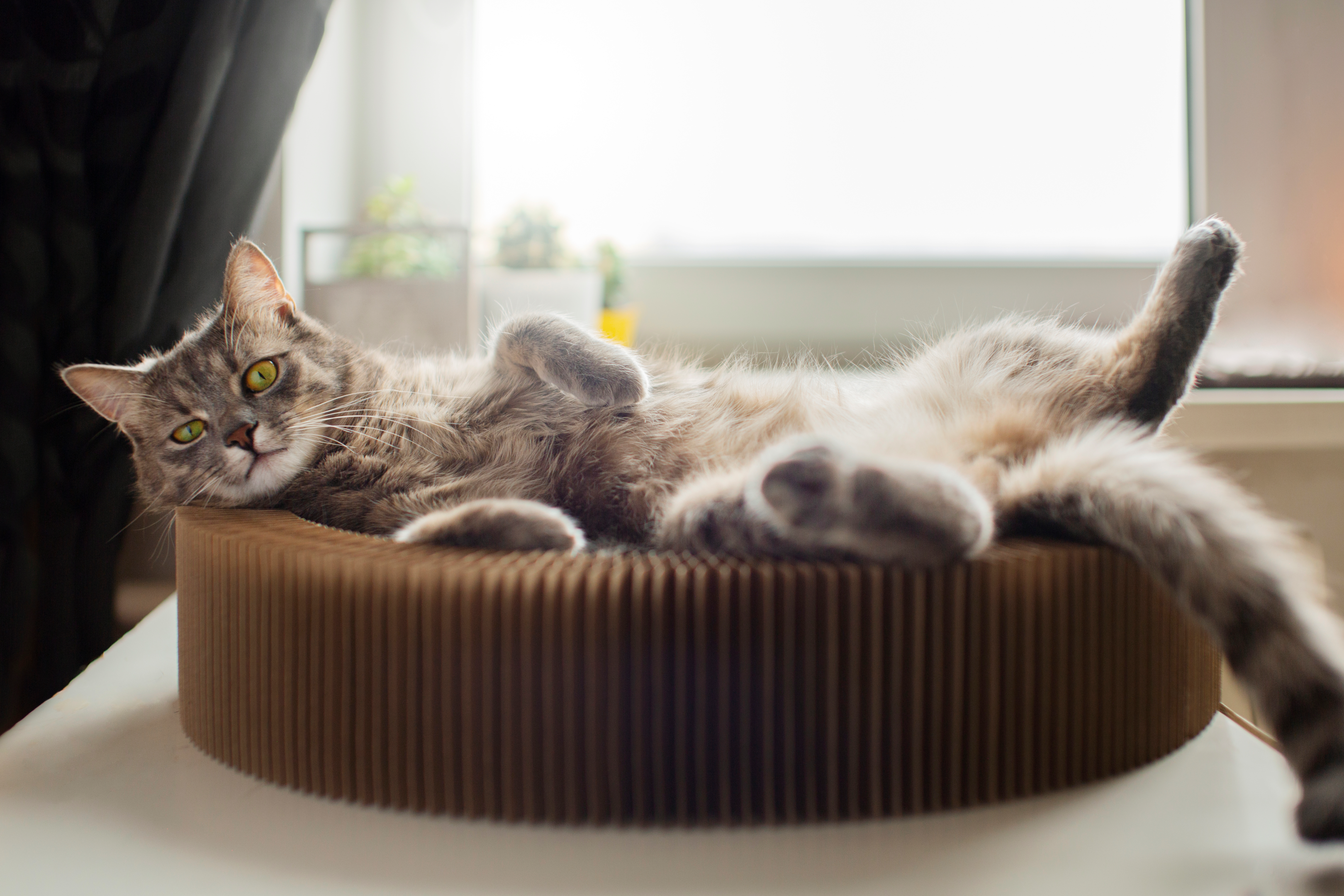
If your cat sleeps the whole day, it might be because of a lack of mental and physical stimulation. Contrary to the belief that cats love to sleep a lot, they are not naturally made like that.
For many cats, their increased sleeping could be a result of boredom, indicating a need for more activities during waking hours.
-
Age
The age of your cat can also influence their sleep patterns, so one reason behind your cat waking up super early could be that.
A senior cat experiencing muscle or joint pain may find sleep less comfortable, leading to more restless nights. Additionally, older cats dealing with feline dementia may exhibit irregular waking patterns, making them wake up super early in the morning.
-
Temperature
Cats prefer warmer temperatures. Their thermoneutral zone, which is basically the range where they don't need to use energy to regulate body temperature, is between 86 and 97 degrees Fahrenheit.
This range is higher than the human thermoneutral zone, estimated to be around 82 to 90 degrees Fahrenheit. If your cat feels cold, it might affect their sleep quality and duration, making them get up super early or in the middle of the night.
How to Stop Your Cat from Waking You Up?
To stop your cat from waking you up early, start by figuring out what they want. Pay attention to what your cat does when they wake up – do they enjoy food, playtime, or just race around the house?
If your cat meows a lot after waking up early consistently, you can't just make their needs disappear, but there are some tips designed to help you handle and reduce early morning disruptions based on why cats wake us up.
-
Feed them frequently
To help your cat stop waking you up because they're hungry, try not to go too long between their meals; around 8 hours is good for most cats. Feed them a bit before you go to bed.
You can also use feeders that release food automatically. At first, set it to give food a little before your cat usually wakes up. If you don't want them eating that early, gradually change the feeder time over a few months so they eat a bit later each week.
Once it matches the time you wake up, you can stop using the automatic feeder and feed them yourself. It's also okay if it's just a small snack in the wee hours of the morning to keep them going till you wake up instead of a full meal.
-
Address boredom
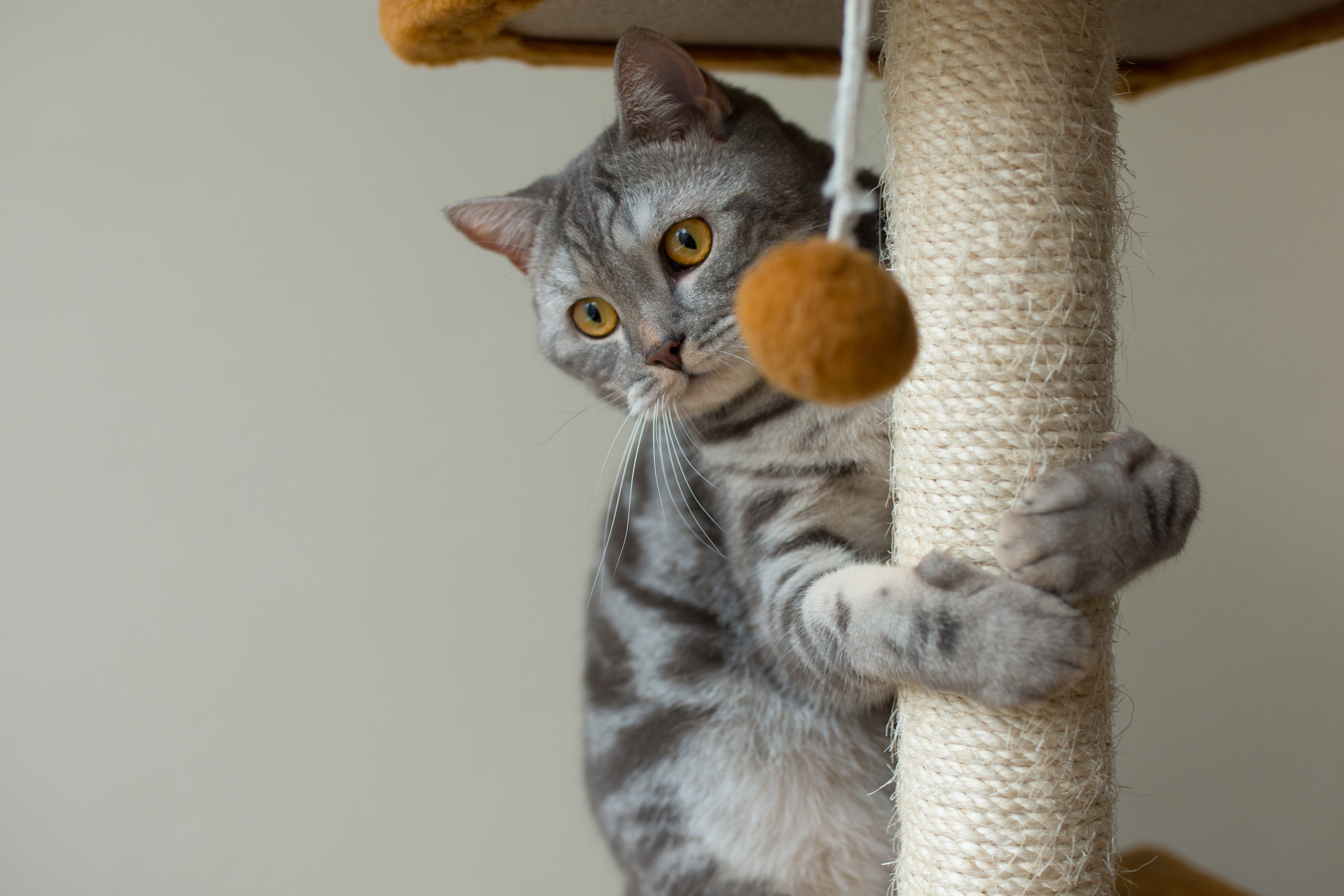
As a responsible cat owner, you need to make sure your feline best friend gets plenty of play and interesting activities during the day, basically providing environmental enrichment so they feel ready to sleep at night.
A play session with interactive Cat Toys that mimic hunting, especially right before bedtime, is a good idea. There are a lot of Cat Wands to choose from at Rexipets; our favorite is the classic Cat Teaser Wand Bird Teaser, which will definitely keep your cat engaged. But make sure you end the playtime with their evening meal or a small snack.
Moreover, you can boost your cat's mental activity by giving them a few food puzzles throughout the day. You can also hide treats around the house for them to find, especially if your cat seems bored, or simply use puzzle feeders available at the pet store.
Keep a variety of self-play toys around and change them regularly to keep your cat interested. These include cat trees and maybe a scratching post. These aren't technically toys, but they will keep your cat busy. You can choose from the best toys for cats alone at home according to your cat's needs.
Additionally, you can also include short training sessions for mental stimulation and a chance to bond with your kitty; this will keep them stimulated, and they will stop waking up super early and let you get your night-long sleep.
-
Cozy sleeping spot
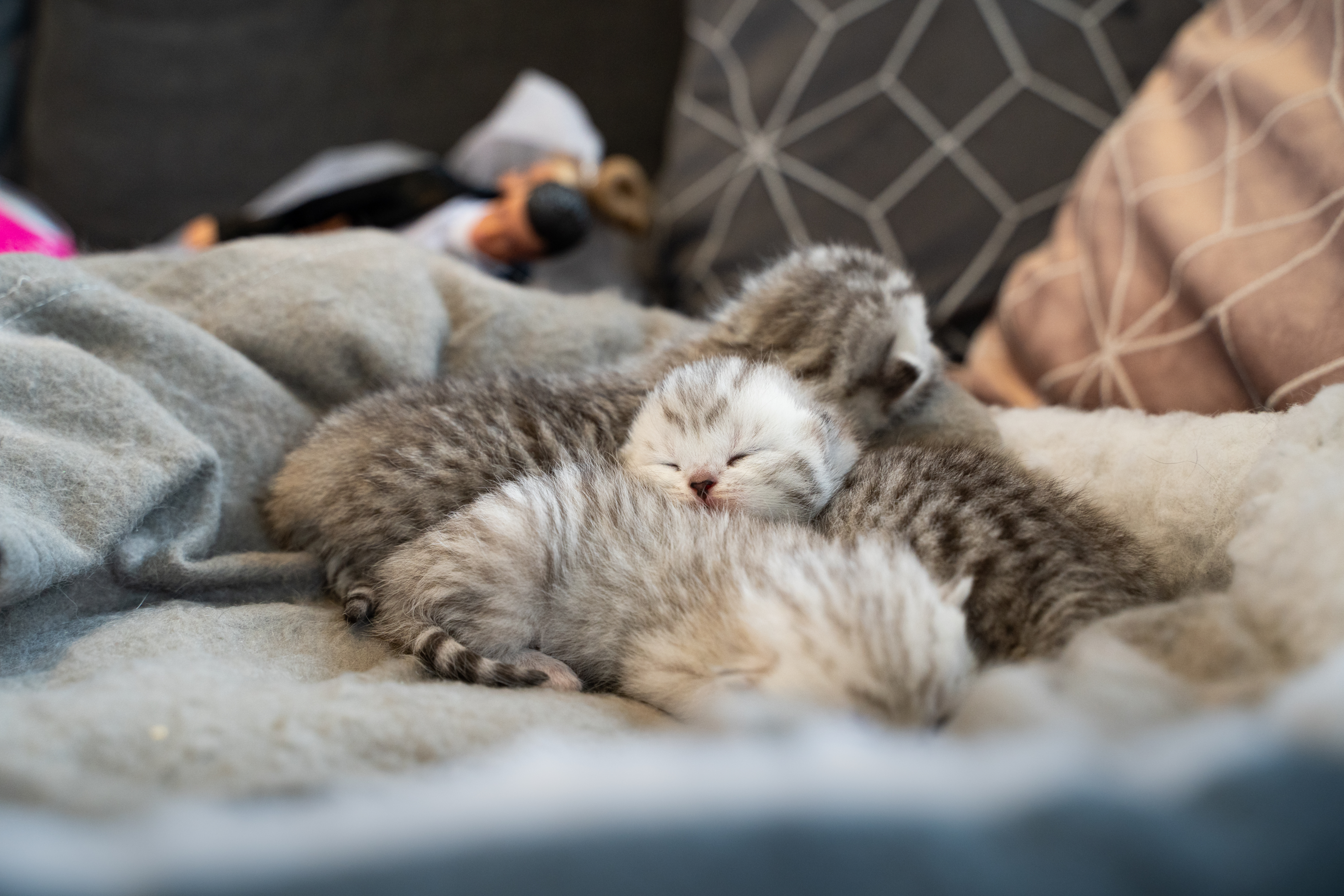
In colder weather, consider using a heated bed or a cat-safe heating pad in your cat's sleeping area to help your cat sleep better at night, especially if they're older and have joint or muscle aches. Make sure to use products made for cats and not human heating mats, as they can be too hot and harm your cat's skin. In warmer weather, a cooling pad can be a good idea. Create a cozy bed for your cat. Just keep this away from the litter box.
-
Ignore attention-seeking behavior
Dealing with attention-seeking behaviour in your cat requires completely ignoring it – no eye contact, no talking about their antics, not even turning over in bed. Any acknowledgement can encourage them to keep trying.
If it becomes too much, it's okay to put your cat outside the bedroom without saying anything. Keep it quick and neutral – pick them up, place them outside, close the bedroom door if necessary, and go back to bed. Despite it getting more intense initially, known as an extinction burst, stay firm, and they should realize this behaviour gets them nowhere.
Remember, you can't expect your cat to stop seeking attention without offering positive interactions during the day. Play with them during the day to meet their need for attention and stimulation.
-
Positive reinforcement
If your cat manages to stay quiet and calm during the early morning hours, it's a good opportunity to reinforce their positive behaviour. You can offer treats or give them gentle petting as a form of positive reinforcement for good behavior.
By doing this consistently, your cat may start associating being calm in the mornings with receiving rewards, encouraging them to continue this behaviour over time.
Positive reinforcement also helps create a positive connection between their actions and the pleasant experience of receiving treats or affection, promoting a quieter morning routine for both you and your feline friend.
-
Consider medication
If you've tried various strategies and your cat still keeps waking you up at night, it might be helpful to consult with your vet about potential medications to help your cat relax and sleep better.
Particularly for senior cats, a low dose of gabapentin can be helpful. Give it to your cat about 2-2.5 hours before bedtime for a more restful good night's rest. Your vet can discuss other medication and supplement options to help your cat relax. Discuss with your vet to explore all available choices and determine the most suitable solution for your specific situation.
-
Feliway diffusers
Consider using Feliway diffusers, which are made to replicate natural feline pheromones. These diffusers can contribute to a relaxed environment for your cat, reducing the likelihood of meowing or scratching to wake you up. Placing these diffusers around your home can create a calming atmosphere, potentially leading to more peaceful nights for both you and your cat.
Final Words!
Curbing your cat's early morning wake-up calls requires a combination of understanding their needs, providing proper care, and implementing effective strategies. Taking care of their hunger, offering playtime, and creating a cozy sleeping environment. If needed, seeking veterinary advice is a crucial step in promoting a good sleep routine for both you and your feline companion.
It is important to remember that patience is key, and a consistent approach will likely get you positive results, but it will take time. Till then, earplugs will be your best friend for your much-needed sleep.
By taking the time to meet your cat's needs and creating a calming routine, you can enjoy restful nights and strengthen the bond with your feline friend.
FAQs
What if my cat continues to wake me up despite trying different strategies?
Consult with your vet to explore potential medications or supplements that may help your cat relax and sleep through the night. Gabapentin, in low doses, is one option, but discuss all possibilities with your vet.
Can Feliway diffusers really help in preventing early morning wake-ups?
Yes, Feliway diffusers can be effective. They mimic natural feline pheromones, creating a calming environment that may reduce meowing or scratching behavior and promote a better sleep cycle.
Is it normal for my senior cat to have changes in sleep patterns?
Yes, it's common for senior cats to experience changes in sleep patterns, sometimes due to factors like joint pain or the effects of feline dementia. Discuss any concerns with your vet to determine appropriate interventions.
How often should I change my cat's self-play toys to keep them interested?
It's a good idea to rotate toys every few days to maintain your cat's interest. Rotating toys weekly can also help keep playtime engaging and enjoyable.
